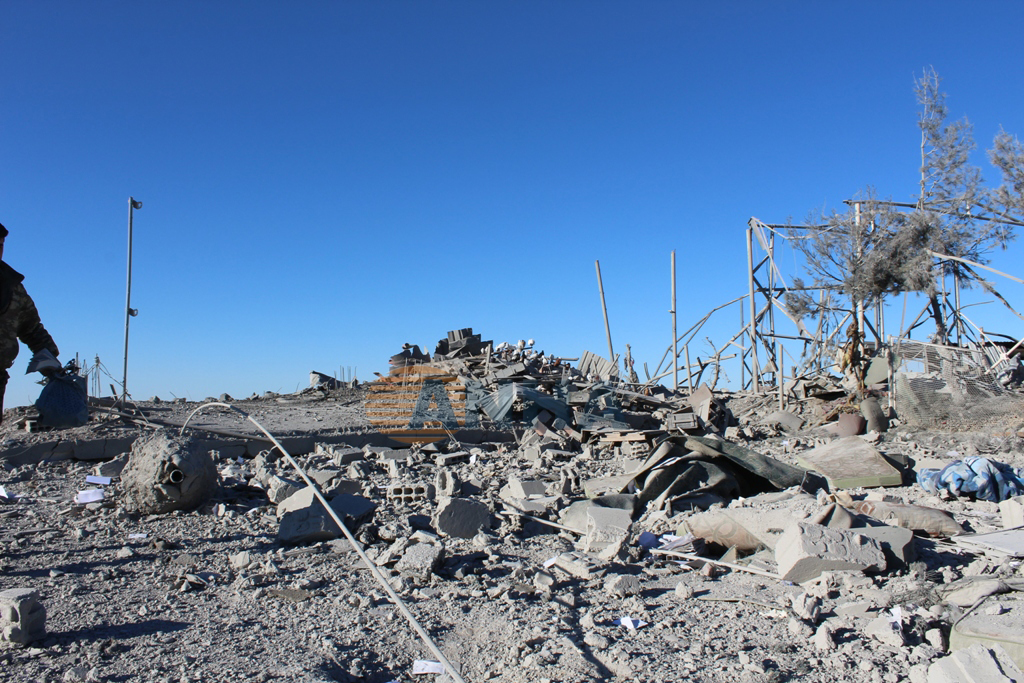April 27, 2017
Following Turkey’s air strikes on the U.S.-backed Kurdish forces in both Iraq and Syria, Turkish President Recep Tayeb Erdogan vows more strikes, though the U.S. State Department has expressed “deep concern” and U.S. Central Command stated that they were “troubled” by the strikes. Later on 26 April, reports indicated that U.S. military personnel based in Syria to help the People’s Defense Units (YPG) fight ISIS were only six miles from the site of the deadly Turkish air strikes.
These air strikes resulted in the death of 28 members of the U.S.-trained Kurdish forces who are currently fighting ISIS, including members of both the YPG in Syria and Iraqi Kurdistan’s Peshmerga forces. Turkey’s pretense for the attack on Iraq was to strike the positions of the Kurdistan Workers’ Party (PKK), who had presence in the Sinjar (Shengal) region after saving thousands of Yazidi families from ISIS back in August 2014. The PKK and the Turkish government have been in conflict for decades concerning the rights of the Kurdish people in Turkey. While Turkey considers YPG to be a part of the PKK, the U.S. has openly worked with the YPG in the battle against ISIS. Moreover, the Turkish strikes also targeted the Iraqi Kurdish Peshmerga forces and killed 8 of their fighters as well. Turkey’s military subsequently announced that it was a mistake to target the Peshmerga forces.
The U.S.-backed Syrian Democratic Forces (SDF), a multi-ethnic coalition of groups including the YPG which are working together to fight ISIS, released a statement stating that, “The Turkish regime tried, though this attack, to ease the pressure exerted by our forces in coordination with the international coalition forces against ISIS in Raqqa.” YPG also released a statement condemning the Turkish attack and reaffirming their commitment to fight against terrorism: “We as the People’s Defense Units say that this cowardly attack will not discourage our determination and our free will to fight and confront terrorism. We also call on our people with all its components in Rojava [Kurdish area in Syria] to stand in line with its legitimate forces in the face of this blatant attack.” On many occasions, the co-president of Syria’s largest Kurdish political party, the Democratic Union Party (PYD) Salih Muslim has accused the Turkish government of aiding ISIS or turning blind eye to ISIS.
Serious concerns have been raised that the escalation of the Turkish strikes on will distract from the fight against ISIS, especially in the Raqqa area, the location of ISIS’ de facto capital, as the SDF are at the outskirts of the city after inflicting heavy losses on ISIS. A similar scenario occurred last year when Turkey killed 160-200 YPG fighters and backed extremist groups in an operation Turkey called Euphrates Shield. A report recently revealed that elements of the Turkish-backed groups handed Turkish tanks over to ISIS. The U.S. has trained and equipped both the YPG and Iraqi Kurdish Peshmerga forces to fight ISIS. Currently the U.S.-led coalition is supervising the “Wrath of Euphrates” operation to liberate Raqqa. It remains to be seen whether the U.S.-led coalition will stop Turkey from attacking the Kurdish forces who are fighting ISIS, or if Turkey will continue to do so as Pres. Erdogan has promised.

